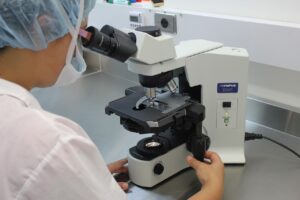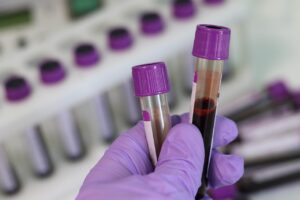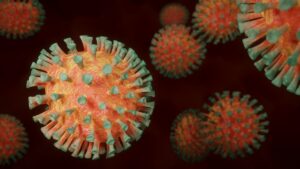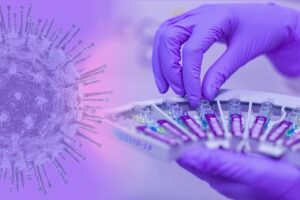Laboratory
Laboratory
In Practice Progressive-Medicine, Britta Jansen works with:
MG Laboratories
MG stands for microbiology and gene technology. MG Labs utilizes cell research, cultures, and genetic techniques in their immunological  tests.
tests.
OVERVIEW OF ANALYSIS OF FECES
– Cytological investigation
– pH (acidity), digestion, starch, fat, and fibers investigation
– Bacterial cultures and DNA analysis
– Aerobic flora cultures (E-coli), and determination of relationships between them
 – Anaerobic bacteria types through DNA identification
– Anaerobic bacteria types through DNA identification
 – Analysis of pathogenic bacteria such as Campylobacteria
– Analysis of pathogenic bacteria such as Campylobacteria
– Identification of salmonella, klebiella, proteus
– Cultures of yeast, funguses, Candida + nystatine sensitivity
– Immunological tests on sIgA (to identify chronic  infections, gluten intolerances)
infections, gluten intolerances)
– Identifying Occult blood (infections) and antibodies against gluten
 – Helicobacter pylori (stomach), giardia lamblia, and cryptosporidium (intestinal parasites)
– Helicobacter pylori (stomach), giardia lamblia, and cryptosporidium (intestinal parasites)
– Precursors: calprotectin, lactoferrine, TNF-a, B-defensive, MR-pyruvate, kinase, M2PK
– Alfa-1-trypsine (Loss of proteins, damage to intestines)
– Anti-t- transglutaminase and anti-gliadine (gluten)
 TFT test: triple feces test for parasites.
TFT test: triple feces test for parasites.
Pro Health Laboratory Incorporated
IMU PRO 300
Imu Pro shows the presence of IgC antibodies present in the blood serum. Raised concentrations of IgC antibodies present in the blood indicate that the small intestine has  insufficiencies (leaky gut syndrome).
insufficiencies (leaky gut syndrome).
Macromolecular food particles that push through the lining of the bowels are recognized by the immune system as foreign entities, and specific IgC antibodies are formed in response.
When high concentrations of IgG antibodies are present, it is evident that there has been regular contact between the food particles and the immune system, which has resulted in an immune response that is initiated when the body perceives an infection.
These processes are ongoing, and can be the cause of chronic bodily complaints. ImuPro 300’s research of the blood charts articles of food that result in that immune response in the body. With that information, the dietary intake can be adjusted.
LIME:
Pro Health Medical Laboratory works together with several international laboratoria for a reliable diagnosis on the Borrelia bacterie.
– SeraSpot® . A sensitive Lyme test. The test can be done relatively soon after a tick bite.
– MELISA LTT. De LTT Lyme test is one of the most reliable Lyme test at the moment and a very good next step once the serologic test (ELISA/Blot) is negative.
De Melisa LTT is international validated, 14 studies where published on Melisa LTT with Borrelia infections.
This test can be used after an earlier negative outcome or for testing after the treatment on Lime.
The test is also useful after a longer period of Lime symptoms.
The Melisa Borrelia test is available in Germany at certified partner laboratories.
Keac
Clinical Ecological Allergy Center
Keac shows the presence of HPU through the means of urine testing.
With HPU (hemopyrrolactamurie), the HPL-complex (hemopyrrolactam-complex) is released with the urine. Hemopyrrolactam-complex binds to vitamin B6, manganese, and zinc and releases them from the body.
The shortages that arise due to presence of HPU disturb biochemical processes that are dependent on these vitamins and minerals.
This can be the cause of many complaints in the body, including muscle and joint complaints, hormonal issues, hypoglycemia, stomach and intestine complaints, fatigue, headaches, etc.